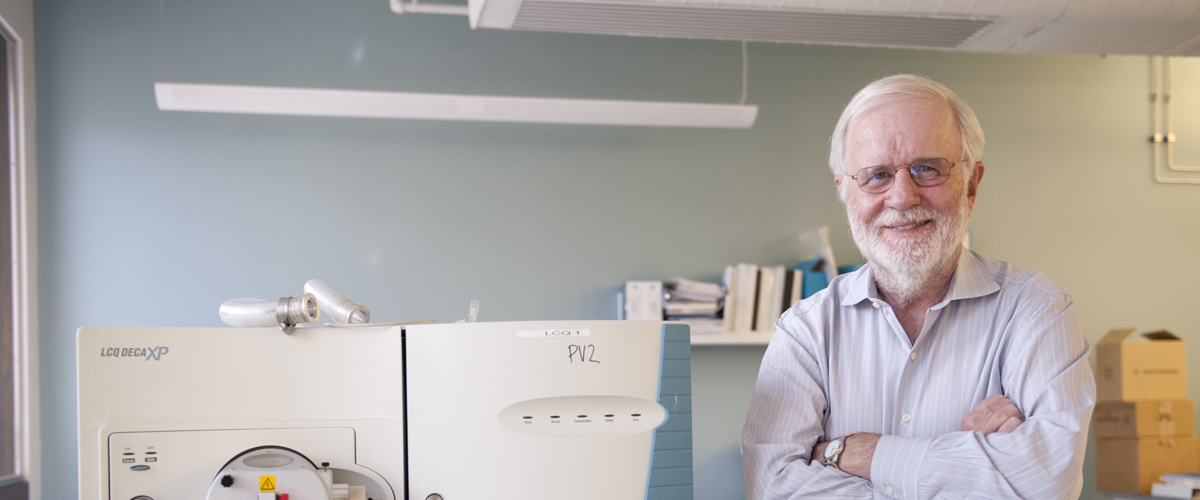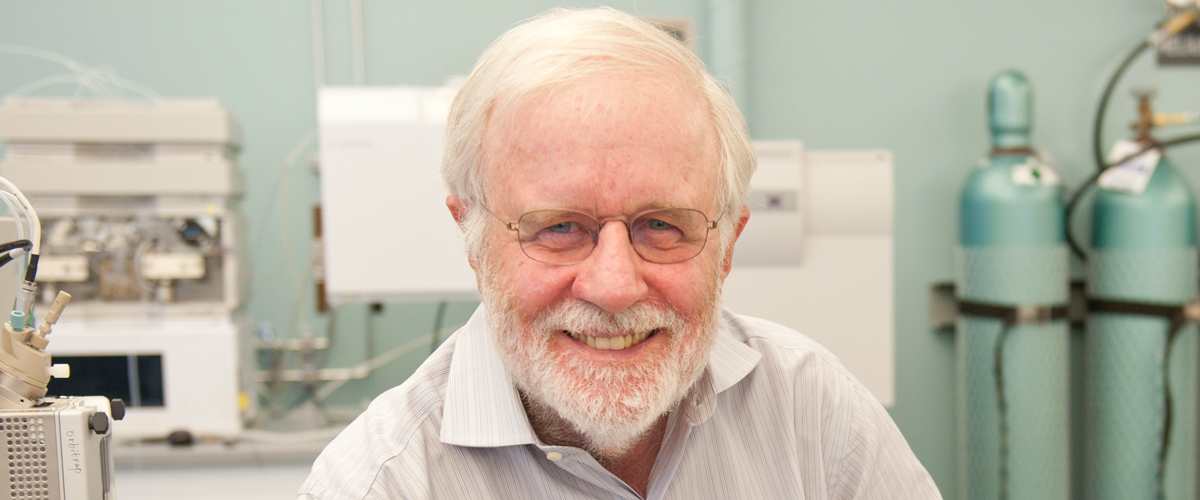by Matthew Palvlovich, Post-Doctoral Associate, Barnett Institute of Chemical and Biological Analysis, Department of Chemistry and Chemical Biology
Professor William Hancock, the Bradstreet Chair in Chemistry and Chemical Biology and a professor in the Barnett Institute, has been invited to serve as a consultant to the Advisory Committee for Pharmaceutical Science and Clinical Pharmacology in the Center for Drug Evaluation and Research (CDER) at the Food and Drug Administration (FDA).
CDER advisory committees provide the FDA with independent expert advice on scientific, technical, and policy matters in more than 50 different areas, ranging from antimicrobial drugs to gene therapies to dental products, and each committee typically meets two to four times a year. Advisory committee consultants may be asked to serve on a number of different committees depending on their expertise.
Dr. Hancock, an expert in protein drugs, says he anticipates advising on analytical, manufacturing, formation, and quality control issues. His career in analytical biotechnology has involved working with and for the FDA in the past: in 1982, he presented research at an FDA meeting supporting the approval of synthetic insulin as a therapy for diabetes, which led to the agency accepting novel bioanalytical assays as evidence in submissions for new protein drugs. Shortly afterwards, he joined the FDA as a visiting scientist, establishing a HPLC assay for the activity of insulin products.
As an advisory committee consultant, Dr. Hancock, along with other advisors, may be asked to provide advice on scientific and technical issues concerning the safety and effectiveness of drug products for use in the treatment of a broad spectrum of human diseases, and as required, the quality characteristics which such drugs purport or are represented to have, and as required, any other product for which the Food and Drug Administration has regulatory responsibility, and make appropriate recommendations to the Commissioner of Food and Drugs. Advisory committees’ recommendations are not binding but are influential.
Continuing his work at the intersection of academia, industry, and regulatory policy, Dr. Hancock’s research group has developed new analytical approaches to characterize a number of protein drugs, including human growth hormone, gamma-interferon, tissue plasminogen activator and antibodies. In these studies his group has also pioneered the application of “hyphenated” chromatography-mass spectrometry for product characterization and to facilitate regulatory approval.
Dr. Hancock has participated in other FDA sponsored meetings such as the “Well Characterized Biotechnology Product” and also testified before the Senate Judiciary Committee on “The Law of Biologic Medicine,” while continuing to translate biotechnology from the laboratory to industrial practice, eventually resulting in his invitation to join the FDA’s group of advisory committee consultants.
Through his service with the advisory committees, Dr. Hancock will be able to use his expertise to advise the FDA on the safety and effectiveness of new protein drugs and shape the future development of novel therapeutics.

Dr. William Hancock

